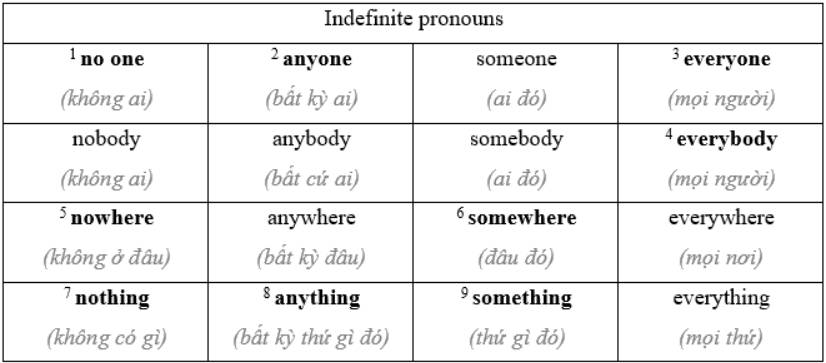Hãy nhập câu hỏi của bạn vào đây, nếu là tài khoản VIP, bạn sẽ được ưu tiên trả lời.

1. had | 2. lived | 3. wouldn’t | 4. would |
LEARN THIS! I wish..., If only ... a. We use I wish... and If only... with the past simple to say that we want a situation to be different from how it really is. (Chúng ta sử dụng I wish... and If only... với thì quá khứ đơn để nói rằng chúng ta muốn một tình huống khác với thực tế của nó.) I wish I 1 had a brother. (But I haven't got one.) (Tôi ước tôi có một người anh trai. (Nhưng tôi không có.)) If only you 2 lived nearer. (But you live far away.) (Giá như bạn sống gần hơn. (Nhưng bạn sống ở xa.)) b. We use / wish... and If only... with wouldn't) + infinitive without to to say that we want somebody to behave differently. ((Chúng ta sử dụng / wish... và If only... with would not) + nguyên mẫu không có ‘to’ để nói rằng chúng ta muốn ai đó cư xử khác đi.)) I wish you 3 wouldn’t borrow my clothes! It's annoying! (Tôi ước bạn sẽ không mượn quần áo của tôi! Phiền thật đấy!) If only she 4 would spend more time on her homework! (Giá như cô ấy dành nhiều thời gian hơn cho bài tập về nhà!) |
Alfie: This is an amazing place. I wish I lived here.
Macy: Me too. If only I were a member of the Howard family!
Alfie: But if it were my house, I wouldn't allow people to visit.
Macy: That's mean! You'd get bored on your own.
Alfie: Oh, I'd let my friends visit, of course. But not the public.
Macy: If you had a party, you could invite hundreds of people!
Alfie: I know. The parties would be better if I made a few changes, though.
Macy: What kinds of changes?
Alfie: Well, if those trees weren't there, there'd be room for a swimming pool!
Macy: You could make some changes inside as well. I mean, look at this corridor.
Alfie: The Antique Passage, you mean?
Macy: Yes. If you took away all the statues, you could build a great bowling alley there!

- Quy tắc a: will be able, won’t die
(sẽ có thể, sẽ không chết)
- Quy tắc b: will probably be, are certain that bio-printing will revolutionise
(có lẽ sẽ, chắc chắn rằng in sinh học sẽ cách mạng hóa)
- Quy tắc c: could save, could play
(có thể cứu giúp, có thể đóng vai trò)
- Quy tắc d: might not come
(có thể không đến)

| 1. before | 2. after | 3. inseparable |
LEARN THIS! Separable and inseparable phrasal verbs
a Two-part phrasal verbs can be separable or inseparable. With separable phrasal verbs, the object can come before or after the particle (for, up, with, etc.).
We must work out the answer.
OR We must work the answer out.
b When the object is a pronoun (her, it, them, etc.) it can only come 1 after/before the particle.
We must work it out.
c With inseparable phrasal verbs, the object always comes 2 after/before the particle, even when it is a pronoun.
She looks after her dad. She looks after him.
d Three-part phrasal verbs are always 3 separable / inseparable.
We won't run out of energy. We won't run out of it.
(LEARN THIS! Các cụm động từ có thể tách rời và không thể tách rời
a Cụm động từ gồm hai phần có thể tách rời hoặc không thể tách rời. Với các cụm động từ có thể tách rời, tân ngữ có thể đứng trước hoặc sau tiểu từ (for, up, with, v.v.).
Chúng ta phải tìm ra câu trả lời.
HOẶC Chúng ta phải tìm ra câu trả lời.
b Khi tân ngữ là đại từ (her, it, them, v.v.) nó chỉ có thể đứng trước tiểu từ.
Chúng ta phải giải quyết nó.
c Với cụm động từ không thể tách rời, tân ngữ luôn đứng thứ sau tiểu từ, ngay cả khi nó là đại từ.
Cô chăm sóc cha mình. Cô chăm sóc ông ấy.
d Cụm động từ ba phần luôn không thể tách rời.
Chúng tôi sẽ không cạn kiệt năng lượng. Chúng tôi sẽ không hết nó.)

![]()
LEARN THIS! The third conditional
a We form the third conditional with if + past perfect, would have + past participle.
If I had seen her, I would have offered her a lift.
b We use the third conditional to talk about imaginary situations and to say how things could have been different in the past.
If you hadn't gone by taxi, you 1 wouldn’t have arrived (not arrive) on time.
c We often use it to express regret or criticism.
If you 2 had left (leave) earlier, you 3 wouldn’t have been (not be) late!




LEARN THIS! Indefinite pronouns
a We use indefinite pronouns beginning with some- in 1 affirmative sentences. We use pronouns beginning with any- in 2 negative sentences and 3 questions
b Indefinite pronouns take a 4 singular verb form.
Nobody lives in that house.
c But if we refer back to everyone or everybody, we treat them as 5 plural.
Everyone is here, aren't they?
(LEARN THIS! đại từ bất định
a Chúng ta sử dụng các đại từ không xác định bắt đầu bằng some trong câu khẳng định. Chúng ta dùng đại từ bắt đầu bằng any- trong câu phủ định và câu hỏi
b Đại từ bất định chia dạng động từ số ít.
Không ai sống trong ngôi nhà đó.
c Nhưng nếu chúng ta gọi lại mọi người hoặc mọi người, chúng ta coi họ là số nhiều.
Mọi người đều ở đây, phải không?)